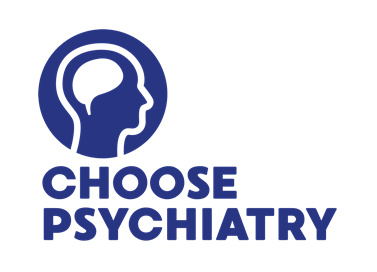A life-changing career
04 November, 2019
Dr Golnar Aref-Adib’s first encounter with psychiatry wasn’t exactly perfect – but thanks to a stimulating psychiatry placement as a GP trainee, and supportive mentors, she found her way to a fantastic career spanning both academia and acute care.

If you’d asked me at the beginning of my medical training whether I’d ever ‘choose psychiatry’, the answer would have surely been no. After all, I had my eyes set on a completely different path. But almost 10 years on, I’m one of the field’s most passionate champions.
Here’s the story of how I changed my mind.
An unfortunate introduction
My first encounter with psychiatry in a professional context wasn’t the most inspiring, consisting of a cancelled ward round and shadowing a senior housing officer for half a day. At the time, I had no real understanding of what psychiatry was and was determined to follow a surgical pathway like my mother and grandfather before me.
Sadly, there was a great deal of (sometimes very strange) misinformation around about the field – for example, I was told by other junior doctors that all psychotropic medication caused constipation and pelvic pain and that if I had a psychiatry placement then I would spend my time doing rectal and vaginal examinations! So I remember actively avoiding any foundation posts that involved psychiatry, and instead chose an FY1 and FY2 that was heavy on surgery and emergency medicine.
The more time I spent operating however, the less I enjoyed it. The operations began to feel the same and medicine lost its sparkle. Even within emergency medicine, I felt that the shortness of breath and chest pain patients were merging into one – not a welcome feeling. My questions were monotonous, the investigations and management categorical and absolute: it just wasn’t a good fit for me.
Making connections
My favourite placement was general practice. I was based in a small town in the Midlands and enjoyed getting to know the patients and their families. The practice saw that I was enjoying talking to and managing people with anxiety and depression, and gave me the flexibility to have longer appointments exploring their symptoms and offering management beyond only antidepressants.
Then, as part of GP training, I had a psychiatry placement. Again though, I was tripped up by more misinformation – all the higher GP trainees were advised to do the psychiatry placement last in order to coincide with the GP exams, as “psychiatry is the easiest placement”.
As luck would have it though, I was assigned to psychiatry first in an inpatient unit in London and after the first two weeks of misplaced fear (I used to hold my panic alarm constantly), I became more fascinated by my patients and their stories. I felt like an investigative reporter trying to work out what led them to become destabilised, and how we could best support them.
Finding my passion
It was during this psychiatry placement that everything fell into place. I loved the opportunity (just as I had in my GP placement) to talk to families, friends, and carers, and to think together with patients not just about medication but also about self-care, family dynamics and social circumstances.
I loved the weekly supervision, the Balint group (where trainees would reflect on clinical encounters with a supervisor), and the chance to take on psychotherapy cases. It was a prolific six months, and I came out feeling as if I had seen the light. On the first day of my next placement, I applied for core psychiatry training. I have never ever regretted my decision, and I never will.
In what other speciality can you spend an hour assessing a new patient, making sense of their experiences, and think holistically with them about all aspects of their life? In what other speciality would you see the vast range of illnesses from mania to obsessive-compulsive disorder; from psychosis to depression; from eating disorders to addictions?
But the best part of all is that because of their early childhood, their experiences, their relationships, every patient is unique: their narrative is their own.
I even enjoyed revising for the exams, because they were interesting, relevant, exciting (this was a first for me!). In another twist of fate, in my final year of core training I worked for an academic psychiatrist. I hadn’t realised that they existed or how they worked. He recognised that I enjoyed thinking about psychiatry beyond individual patients – to the delivery of care on a larger scale – and encouraged me to apply for an academic psychiatry position.
Joining the academy
I am now an ST6 NIHR academic clinical Fellow in psychiatry, doing research at UCL and working in an acute day unit in north London. I have absolutely loved psychiatry training and completed an MSc in Mental Health Sciences research and a postgraduate diploma in Cognitive Analytic Therapy.
During my training I have had two children and have been extremely well supported whilst working part-time and when returning to work after maternity leave. I have seen GP, medical, surgical colleagues affected by burn out, stress and their own mental health issues. Psychiatry training – which provides weekly supervision, a Balint group, psychotherapy training – maximises trainees’ resilience, whilst also encouraging independence and growth as a clinician.
So this is a call out for any medical students or doctors who love stories, people and thinking outside the box. If this is you, then consider psychiatry – it may just change your life.


